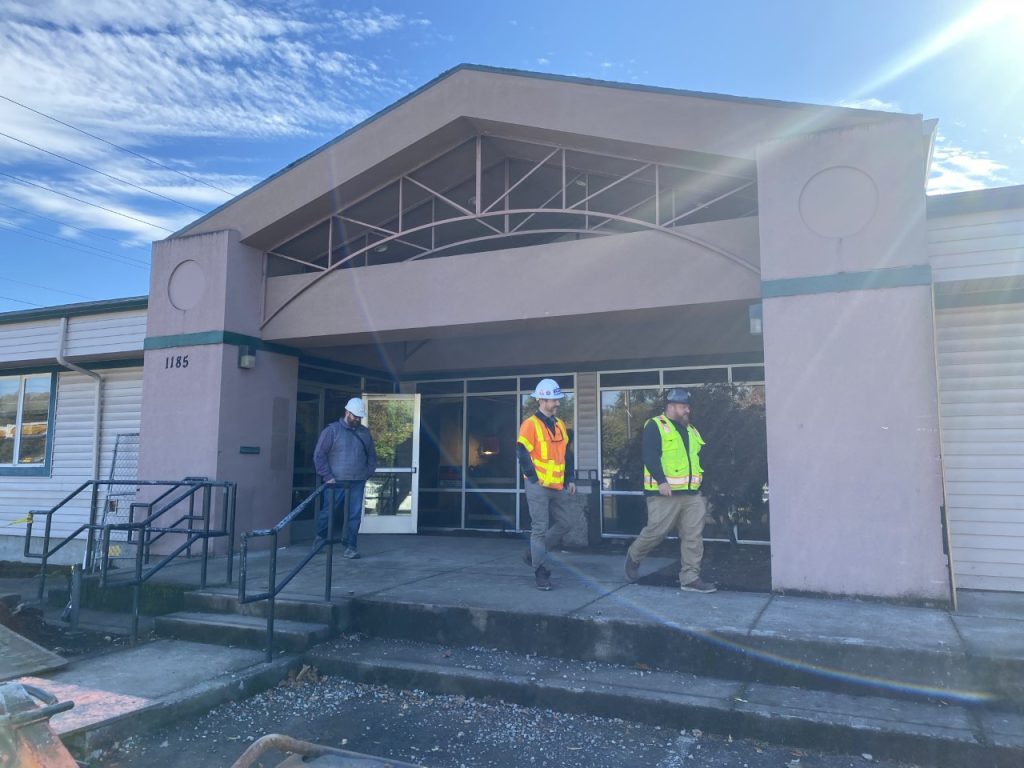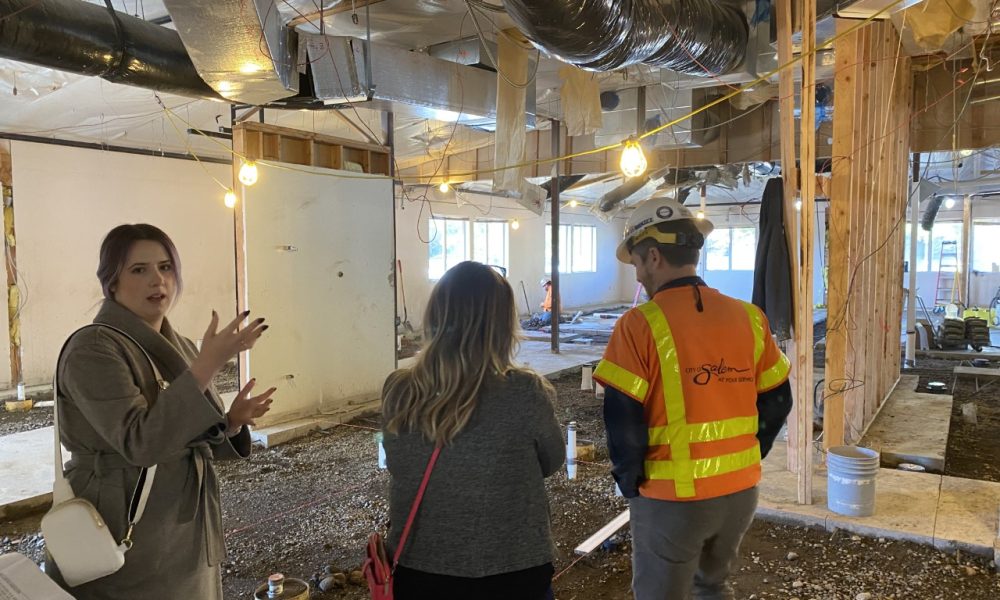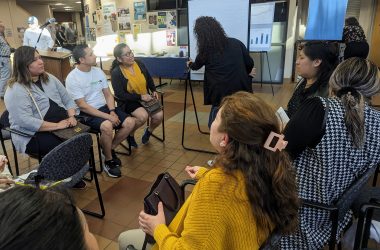Construction is underway for a navigation center in Salem that will help move homeless people into permanent housing, but supply chain issues are delaying the facility’s opening.
The navigation center is estimated to open around February 2023, according to city spokesman Trevor Smith.
City officials said in July that construction was expected to be completed in November or December. Some services at the center may need to be completed later than February because items including kitchen appliances, a backup generator and rooftop HVAC units aren’t available. But Smith said the center can still open without those items if it has a temporary occupancy permit.
The navigation center is intended to provide short-term shelter where 75 people at a time can receive treatment they need to transition directly into housing upon leaving the facility, located at 1185 22nd St. S.E.
Those staying at the center can receive mental health, drug or alcohol treatment without having to worry about basic needs like eating, sleeping and showering, said Ashley Hamilton, program director for the ARCHES Project.
Hamilton said the navigation center won’t be a walk-in facility like the Homeless Outreach and Advocacy Project’s Day Center, where people can connect with the care management team and other social service providers like Northwest Human Services or Marion County Health and Human Services.
The people staying at the navigation center will primarily be referred through “coordinated entry,” which links local homeless service providers together through a common database with information about people seeking services and the type of help they need. The data helps identify if someone may be eligible for a specific program, or how vulnerable they are to continued homelessness.
Hamilton said others would be referred from outreach programs and the Salem Housing Authority, or they would be leaving a hospital or other care facility.
The facility will have a day use space that functions as a living room, with a dining room and commercial kitchen with three meals served a day. Floors were already built in that space as of Thursday, Oct. 27, while square patches of dirt and rocks cover what will become restrooms.

Hamilton said the goal is to move people into housing within 90 days, but that timeline is flexible if the person is engaging with services and setting goals. She said the transition can take up to six months.
Residents leaving the center could move into the Arches Inn, Tanner Project if they are a veteran, an Oxford house for sober living or a private-market apartment rental.
“I don’t mean just handing them a housing voucher and patting them on the back and saying, ‘Good luck,’” said Jimmy Jones, executive director of the Mid-Willamette Valley Community Action Agency, which oversees ARCHES and will run the center under contract with the city. “You basically have a unit for them to go into and they have case management attached to that unit … so that they’re getting ongoing and consistent services, not just being dumped in an apartment somewhere.”
Smith said funding sources for the navigation center include $3 million of federal pandemic relief money, $3 million from Marion County and $1.9 million from the state Legislature for construction and $5 million from the Legislature for two years of operation and unexpected costs during construction.
City officials for years have also floated a separate idea for a sobering center, intended to take in drunk or intoxicated people that police would otherwise jail or take to the hospital.
Community Action built a downtown Salem facility in March 2020 in the ARCHES Project building at 615 Commercial St. N.E, but a lack of funding has stalled the project for almost four years.
“The sobering center remains an important project and along with our local partners, we will continue to develop financial support for it,” Smith wrote in an email Friday. “The City will continue to work to advance the Council’s priority of securing funding and additional support for those experiencing a sheltering crisis, need additional support for addiction or sobering recovery in the community.”
Hamilton said the navigation center accepts everyone regardless of pets, partners, sobriety level or gender, but minors aren’t allowed.
Residents sleep in a shared space that’s visible from offices staffed 24/7. There is a smaller sleeping room for people with sleep apnea who need to plug in machines, as well as people who are often victimized or dealing with trauma.
The center also has restrooms and an outdoor area for smoking and pets.

Hamilton said the facility will make housing programs in the Salem area more successful because residents won’t be going from street homelessness to their own apartment. She said those who do often aren’t equipped for the change, with some of her agency’s clients even putting up a tent in their apartment because they don’t know how to acclimate.
Hamilton said Salem’s navigation center will have behavioral health staff onsite 24/7.
The mental health services at the navigation center will be behavior-based – focusing on how their trauma and other issues like drug use impact them currently, said Sara Webb, ARCHES program director for sheltering services and the clinical social worker for all the organization’s behavioral health programs.
“How do we address those behaviors now and do a stopgap, teaching people intrapersonal skills to re-enter society while referring them out to a more robust trauma treatment facility,” Webb said.
The navigation center has group therapy rooms as well as a de-escalation room with a window that staff can monitor. “We anticipate bringing in people with behavioral issues because we don’t discriminate (against) mental health issues,” she said. “We expect elevated behaviors at times, and we want to give space to de-escalate safely away from everyone else, and not in a space where they can hurt themselves.
The facility will have some beds for law enforcement to drop off clients, according to Jones.
“That’s a little bit of a challenge because this isn’t a jail, and people may be in the middle of a mental health crisis,” Jones said. “We’re going to have onsite mental health care who are trained in de-escalation … Most of those we can kind of figure out a way to handle, but there are some people there whose needs are so acute that they won’t be a good fit for the navigation center model.”
The center will also have case managers who talk with residents about their individualized service plan — their goals, and what life skills they need help developing. That could mean helping people ride the bus, make appointments and go grocery shopping.
PRIOR COVERAGE
State, county funds for navigation center to go before city council Monday
County commissioners consider spending $3 million on navigation center
Funding shortfall to construct navigation center will be Salem’s priority for 2022 short session
Navigation center for Salem homeless could open this winter
Contact reporter Ardeshir Tabrizian: [email protected] or 503-929-3053.
JUST THE FACTS, FOR SALEM – We report on your community with care and depth, fairness and accuracy. Get local news that matters to you. Subscribe to Salem Reporter starting at $5 a month. Click I want to subscribe!

Ardeshir Tabrizian has covered criminal justice and housing for Salem Reporter since September 2021. As an Oregon native, his award-winning watchdog journalism has traversed the state. He has done reporting for The Oregonian, Eugene Weekly and Malheur Enterprise.









